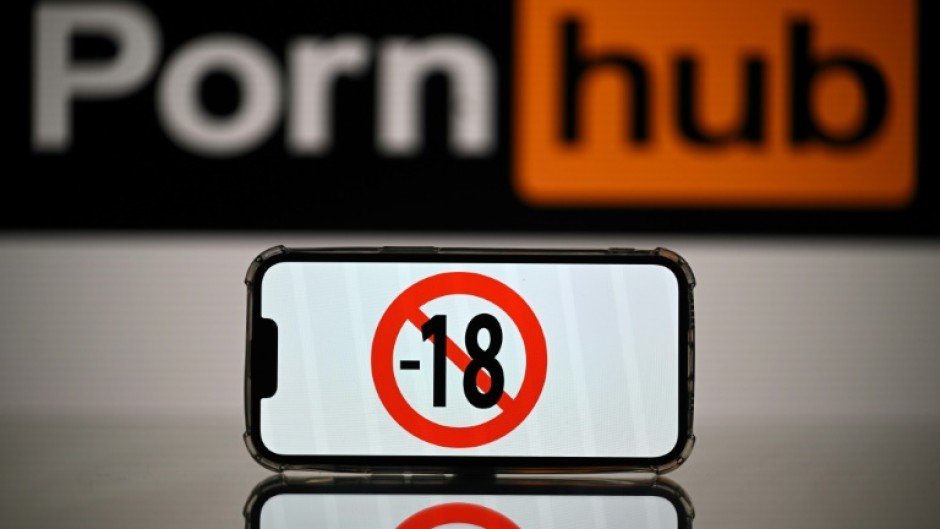The European Union on Wednesday added three pornographic websites to its list of online platforms that are large enough to come under tougher safety regulation.
Adult sites Pornhub, Stripchat and XVideos now join the likes of TikTok, X or Facebook as designated "very large online platforms" -- those with more than 45 million active users in the EU.
From the end of April, four months after the designation, the sites will have to apply stricter rules, in particular to protect children, under the new EU Digital Services Act (DSA).
The three new names on the list bring to 22 the number of huge platforms regulated by the Brussels across the 27-nation bloc, according to a statement from the European Commission.
The commission will monitor how platforms comply with "measures to protect minors from harmful content, and to address the dissemination of illegal content" such as images of rape or child abuse.
"I have been very clear that creating a safer online environment for our children is an enforcement priority under the DSA," said EU industry commissioner Thierry Breton.
EU vice-president Margrethe Vestager said designing the three porn sites "will allow for higher scrutiny and accountability of their algorithms and processes".
The "very large online platforms" or VLOPs are deemed by Brussels to have "systemic importance" by virtue of their sheer scale and must demonstrate what they are doing to comply with the DSA.
In their first reaction to the news, Pornhub protested that the site had only 33 million average monthly viewers in the European Union over the six months to July 31 this year, fewer than the 45 million that would be needed to designate them a very large platform.
Those that breach the rules could be fined up to six percent of their global annual turnover, or even banned from operating in Europe in the event of serious and repeated violations.
- Illegal content -
Among their new obligations, VLOPs must analyse the specific threats posed to Europeans rights and safety by the kind of content they publish and to submit a report to regulators.
They are subject to increased transparency, with the obligation to provide access to their data to researchers approved by the EU.
They must also submit, at their own expense, to an external audit once a year to verify that they comply with European rules.
Platforms must agree to act "promptly" to remove any illicit content as soon as they become aware of it, and to inform legal authorities if they spot serious criminal offences in content submitted online.
They are forbidden from exploiting sensitive user date like political leanings or religious faith for targeted advertising and must be transparent about how their algorithms suggest content.
No firm has yet been found guilty of breaching the new EU content rules.
But on Monday, Brussels opened its first "formal investigation" under the DSA targeting the multibillionaire tech baron Elon Musk's social network X, the rebranded Twitter.
Various preliminary investigations have also been opened in recent months against Apple, Google, Facebook and Instagram parent Meta, TikTok, Snapchat, YouTube and Amazon.

